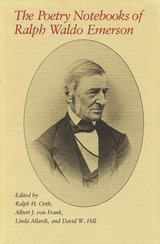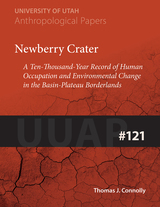
The Civil War is a pervasive presence in the journals in this volume. “The war searches character,” Ralph Waldo Emerson wrote. Both his reading and his writing reflected his concern for the endurance of the nation, whose strength lay in the moral strength of the people. He read military biographies and memoirs, while turning again to Persian, Chinese, and Indian literature. The deaths of Clough, Thoreau, Hawthorne, and his aunt Mary Moody Emerson prompted him to reread their letters and journals, remembering and reappraising.
These were stirring, poignant years for Emerson. The times were hard, his lecturing was curtailed, and a new book seemed out of the question. He felt the losses, fears, and frustrations that come to those who believe in a cause they are too old to fight for. But his respected position as a man of letters brought him some unusual experiences, such as a trip to Washington in which he met President Lincoln, Secretaries Seward and Chase, and other key figures in the government. Inspecting West Point as a member of the Board of Visitors, he was deeply impressed by the character and spartan training of the cadets who were soon to see action.
At the war’s end, busy again with a heavy lecture schedule and feeling his age a little, he took a long look back at the conflict and concluded that war “heals a deeper wound than any it makes.”

In faithfully reproducing all of Ralph Waldo Emerson’s handwritten journals and notebooks, this edition is succeeding in revealing Emerson the man and the thinker. The old image of the ideal nineteenth-century gentleman, created by editorial omission of his spontaneous thoughts, is replaced by the picture of Emerson as he really was. His frank and often bitter criticisms of men and society, his “nihilizing,” his views of woman, his ideas of the Negro, of religion, of God—these and other expressions of his private thought and feeling, formerly deleted or subdued, are here restored. Restored also is the full evidence needed for studies of his habits of composition, the development of his style, and the sources of his ideas. Canceled passages are reproduced, misreadings are corrected, and hitherto unpublished manuscripts are now printed.
Here is the twelfth volume, which makes available nine of Emerson’s lecture notebooks, covering a span of twenty-seven years, from 1835 to 1862, from apprenticeship to fame. These notebooks contain materials Emerson collected for the composition of his lectures, articles, and essays during those years, a complex mixture of index-like surveys of his journals, lists of possible topics and titles, salvaged journal passages and revisions, new drafts ranging from brief paragraphs to several pages in length, notes and translations from his reading, working notes, and partial outlines. In them we see Emerson at work, balancing his aspirations as orator and writer against the practicalities of deadlines, finances, and audiences.

Published here in full are Ralph Waldo Emerson's nine poetry notebooks, the single greatest source of information about his creative habits in poetry. Emerson kept rough drafts, revised versions, and fair copies of hundreds of poems in these notebooks, so that the genesis and development of poems both famous and obscure can be traced closely. The notebooks have been remarkably little consulted, primarily because their unedited textual condition makes them difficult to use. This edition makes them accessible to scholars by presenting a faithful transcription of each notebook, a detailed analysis of the history of each poem, an introduction, and a cross-referenced index.
For this edition, the editors have followed the high standards of textual practice developed for Harvard University Press's edition of The Journals and Miscellaneous Notebooks of Ralph Waldo Emerson. That editorial approach makes possible a logical, clear presentation of material that Emerson often jotted down in segments or with multiple erasures and insertions.
Because it will allow scholars to examine as never before the many facets of Emerson the poet, The Poetry Notebooks of Ralph Waldo Emerson will be a major impetus to study of the man considered by many to be America's greates thinker.
READERS
Browse our collection.
PUBLISHERS
See BiblioVault's publisher services.
STUDENT SERVICES
Files for college accessibility offices.
UChicago Accessibility Resources
home | accessibility | search | about | contact us
BiblioVault ® 2001 - 2024
The University of Chicago Press









